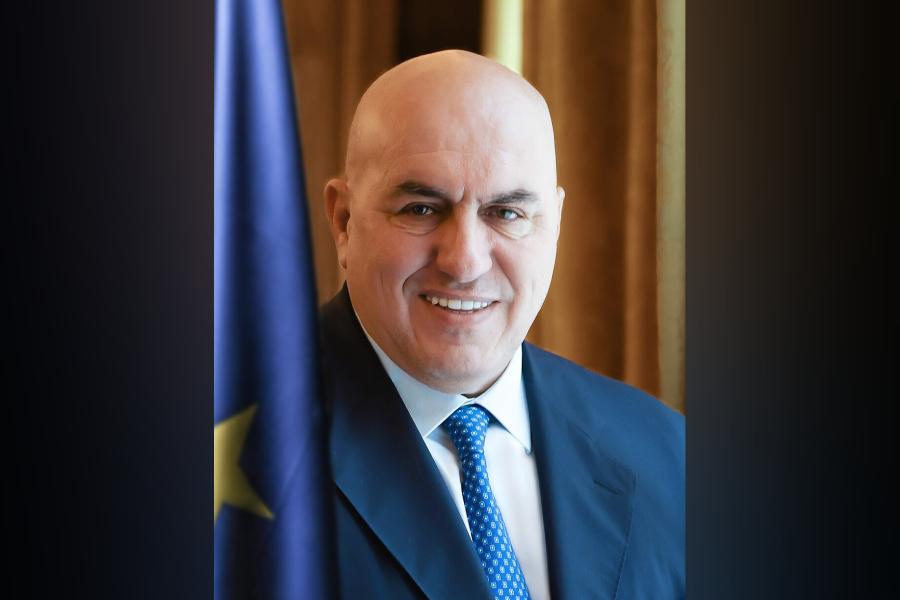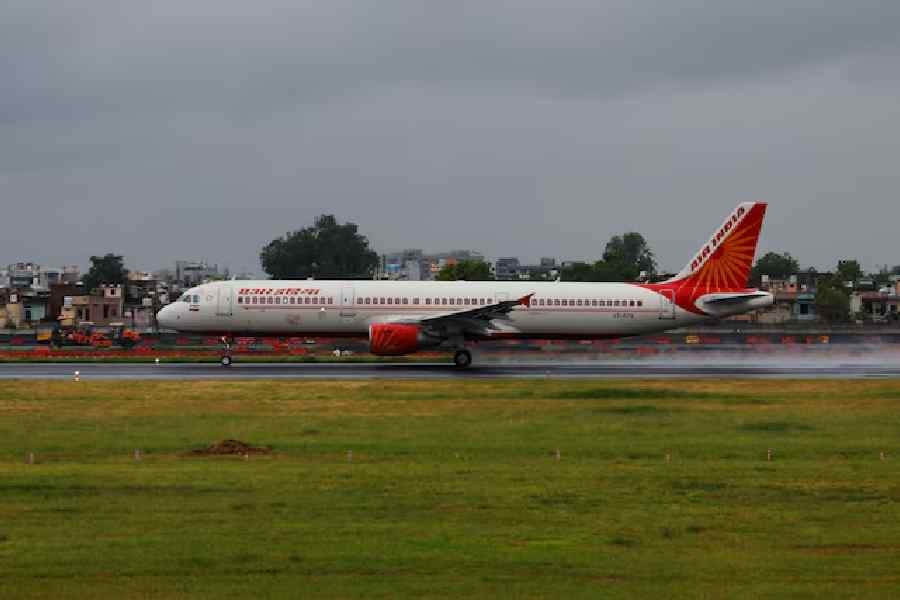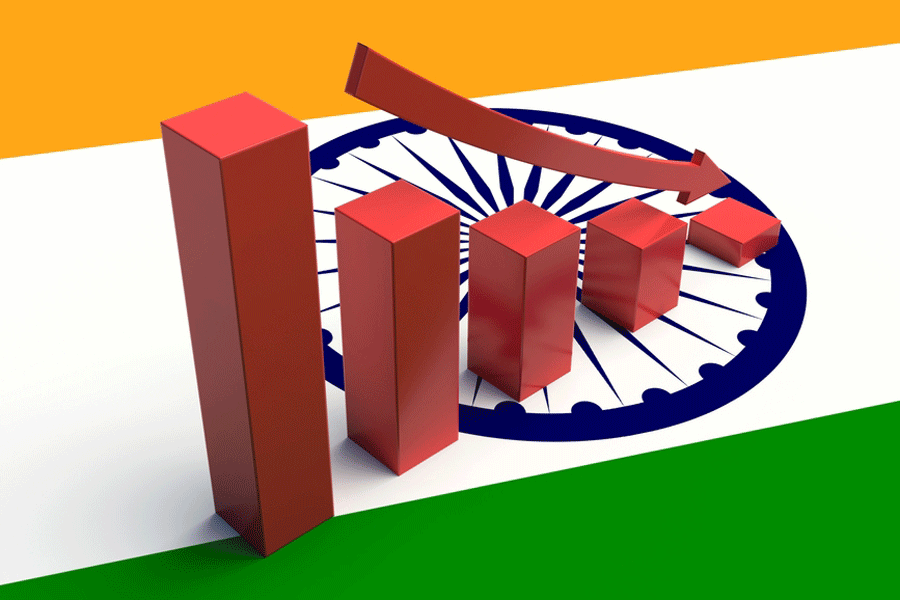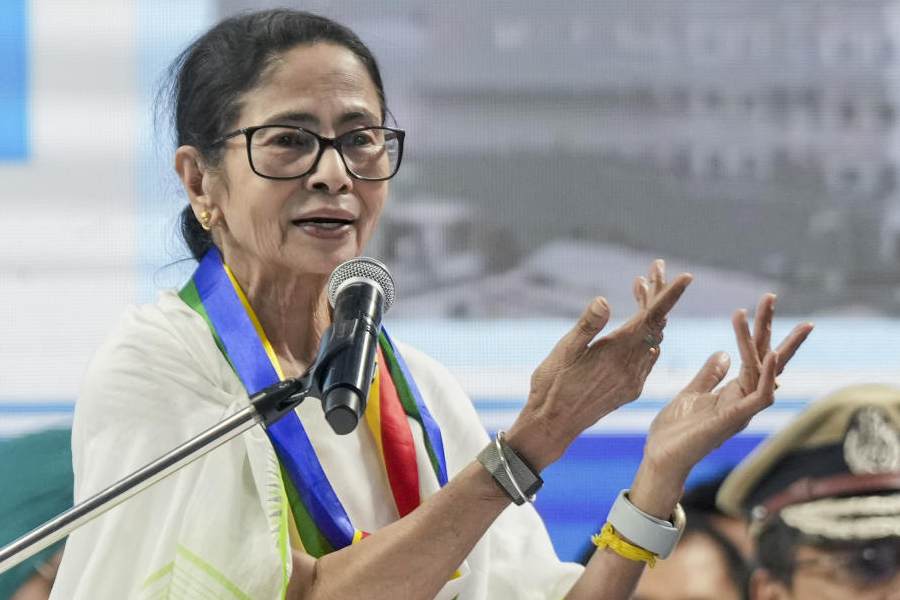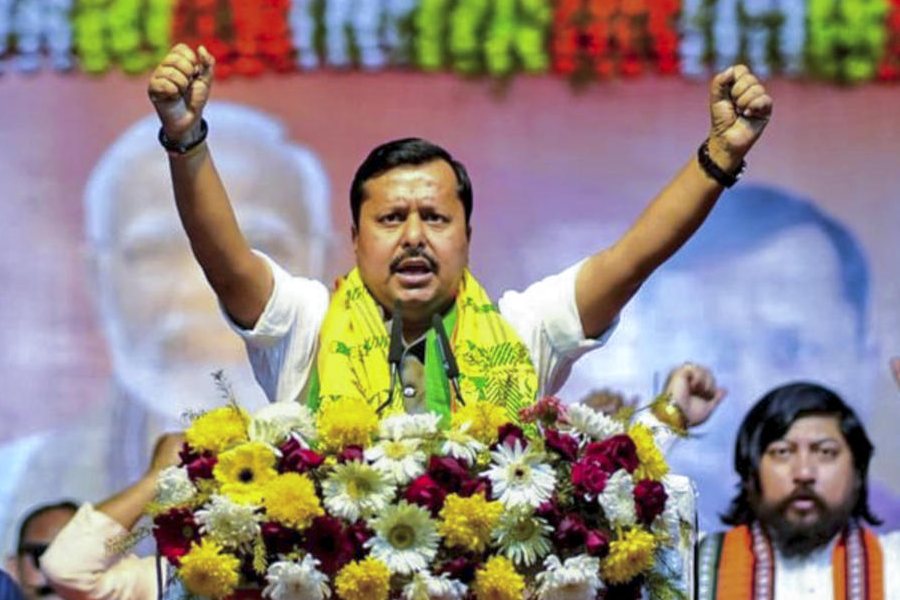 |
| Retired Lieutenant General O.P. Kaushik (centre) with retired Brigadier Ravi Kumar (on his left) after laying wreaths on the War Memorial on Vijay Divas in Ranchi on Tuesday. Picture by Hardeep Singh |
Ranchi, Dec. 16: It is close to four decades now, but memories of the 1971 Indo-Pak war are still fresh on the minds of retired army officers Lieutenant General O.P. Kaushik and Brigadier Ravi Kumar.
The duo were special invitees at a function organised by the 23 Infantry Division to mark Vijay Divas, celebrated to commemorate the victory over Pakistan in the war that led to the formation of Bangladesh.
Kaushik was the Brigade Major of the 61 Infantry Brigade which, along with the 23 Infantry Division, had played a crucial role in defeating Pakistan and had taken custody of about 1 lakh prisoners of war.
Going down the memory lane, Kaushik said the day was December 4, 1971. With a glint in his eyes that spoke as much of valour as his pride, the veteran recalled their plan of attack He recalled that the Indian Army had decided to attack Dhaka from three sides.
“The responsibility of the attack from the eastern side through Bengal was shouldered by the 61 Infantry Brigade, which was commanded by me,” the retired officer said.
“We were to proceed to the Meghna river on the border of Bangladesh (then occupied by Pakistan) within five days. However, the task was accomplished within two days and the troops reached the Meghna river before schedule,” Kaushik said.
“It was night. In those days, there was no facility of night landing of choppers. On top of that, crossing the river was a Herculean task. The river was 6-8km wide and we were stranded with our men and equipment on the banks. Our senior officer General Sagat Singh then planned to use fire markers. We gathered empty milk cans and tin containers, which were filled with kerosene and lit up to illuminate the helipads. The heavy equipment was lifted in the air and the troops moved in local boats to cross the river,” Kaushik said.
He also recollected how the citizens of Bangladesh and Mukti Vahini, a group of young revolutionaries, provided them intelligence reports and other logistics. Rickshaws and scooters of the local residents were used to carry heavy equipment, while the troops waded through the watery paddy fields. Every soldier carried his seven-day ration and ammunition to last for four days, the officer said.
Kaushik, flanked by his son Colonel Akash Kaushik, praised the present army chief of staff, General Deepak Kapoor, who was posted as a Captain in 1971. “General Kapoor had trekked eight km across paddy fields alone to locate our tanks, which had lost their way, and had returned with heavy. The enemies outnumbered us, but sheer willpower and superb planning tilted the balance in our favour. The enemy surrendered on December 16, 1971,” he said.
Brigadier Kumar fought the battle with the raiders on the western front.
“Casualties were high on both sides and our target was to cross the Ichogil canal for entering Lahore. The major portion of the territory that we covered was laden with land mines. Yet, the Indian forces displayed courage, which helped us win the war,” Kumar said.


